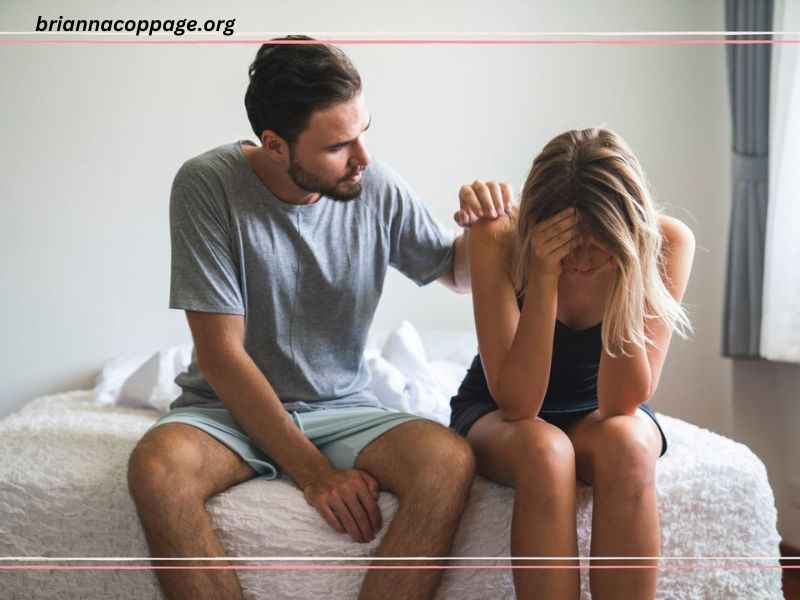Cheating in a relationship is often seen as a betrayal, a violation of trust that can lead to emotional pain, confusion, and a sense of loss for both partners involved. In a gay relationship, these feelings can be just as profound, if not more complex, due to the unique dynamics and challenges LGBTQ+ individuals may face in society. If you’re feeling guilty about cheating on your boyfriend in a gay relationship, it’s essential to acknowledge and understand your feelings of guilt, why they exist, and how you can navigate the situation moving forward.
This article will explore the reasons why guilt might arise after cheating, how to cope with the emotional turmoil, and steps you can take to repair your relationship or make decisions about the future of your partnership.
The Emotional Weight of Gay Relationship
Feeling guilty after cheating is not an uncommon experience, regardless of sexual orientation. Guilt is a complex emotion often tied to the moral compass of an individual, where the act of cheating goes against the values of honesty, commitment, and love that many people hold dear. In a gay relationship, this guilt can be further intensified by the fear of judgment or rejection from the broader community or the additional strain of coming out and navigating social expectations.
In gay relationships, there is often a deep need for connection, understanding, and support due to societal pressures faced by LGBTQ+ individuals. These challenges make the betrayal of cheating even more painful. The guilt you feel may stem from several sources:
- Betrayal of Trust: Relationships, regardless of sexual orientation, are built on mutual trust. When trust is broken through infidelity, it can leave both partners feeling hurt, betrayed, and uncertain about the future of the relationship.
- Self-Blame: You may feel guilty for not upholding the promises and commitments made to your boyfriend. This self-blame is normal but can sometimes be overwhelming. The guilt stems from a belief that you have hurt someone you care about and that you were unable to live up to your own standards.
- Fear of Judgment: If you’re in a gay relationship, there might be an added layer of fear that your actions will be perceived negatively within the LGBTQ+ community. There may be concerns about how your cheating could reflect on the way others view your relationship or your sexual identity.
- Fear of Loss: Cheating often leads to the fear of losing the person you care about most. The guilt of knowing that your actions may have jeopardized the relationship you’ve built can be paralyzing. This is particularly difficult when you still love your boyfriend but struggle with feelings of regret over your actions.
Why Did You Cheat?
Understanding why you cheated is an essential part of processing your guilt and addressing the root cause of the issue. Cheating doesn’t happen in a vacuum, and there are numerous factors that may have contributed to the situation. These factors are unique to each person and relationship, and exploring them can help you understand what led to the betrayal. Some potential reasons why people cheat in relationships include:
- Lack of Emotional Fulfillment: Sometimes, people cheat because they feel emotionally neglected or unfulfilled in their current relationship. In the case of a gay relationship, this can be complicated by the added pressures of societal judgment or internalized homophobia. You might have cheated as an attempt to find emotional intimacy or validation elsewhere.
- Sexual Incompatibility or Desire for Novelty: Some individuals may cheat out of a desire for sexual novelty or variety. In a gay relationship, this might also involve struggling with conflicting feelings about one’s sexual identity, desires, or fantasies.
- Relationship Issues: A lack of communication or unresolved issues in the relationship may also contribute to infidelity. If you and your boyfriend were facing challenges that went unaddressed, cheating could have been a way of avoiding dealing with the underlying issues.
- Personal Struggles: Cheating might be a manifestation of your own personal struggles, such as feelings of inadequacy, insecurity, or a lack of self-worth. These issues can sometimes cause individuals to act out in ways that hurt others, even when they don’t consciously intend to do so.
Understanding the reasons behind your actions is critical in processing the guilt and deciding how to move forward. Recognizing the underlying issues can help you address them in a healthier way and avoid repeating the same mistakes in the future.
Coping with the Guilt of Cheating
Once you’ve acknowledged the guilt of cheating, it’s important to take steps to cope with these emotions in a constructive way. Here are some practical steps you can take:
1. Accept Responsibility
The first and most crucial step is to take full responsibility for your actions. Acknowledging that cheating was a mistake is vital to dealing with the guilt. Avoid making excuses or blaming your boyfriend or circumstances. Accept that you made a conscious choice that hurt your relationship. This can be an uncomfortable process, but it’s necessary for healing and growth.
2. Reflect on Your Feelings
Take time to reflect on your feelings of guilt and the circumstances surrounding your infidelity. Think about what led you to cheat and whether there are unmet needs in your relationship or personal life that contributed to this behavior. Reflection can help you gain clarity and help you address the deeper issues at play.
3. Talk to Your Boyfriend
While it might be difficult, honesty is essential in moving forward. Avoid keeping the secret of your infidelity, as this will only add to your guilt and prolong the healing process. Open up to your boyfriend about what happened and be honest about your feelings. It’s important to listen to his feelings and reactions without being defensive.
4. Seek Professional Help
If you’re struggling to cope with the guilt, consider seeking professional help. A therapist or counselor can help you explore the root causes of your actions and guide you through the emotional turmoil. Therapy can also help you work through your relationship issues and determine whether your relationship is worth saving.
5. Give Yourself Time to Heal
Healing from infidelity is a process, and it takes time. Understand that guilt doesn’t disappear overnight, and it’s normal to experience emotional ups and downs. Allow yourself time to process your emotions and be patient with yourself. Self-compassion is important, as beating yourself up constantly won’t help the healing process.
Repairing the Relationship or Moving On
Once the guilt has been acknowledged and steps have been taken to cope, the next question is whether the relationship can be repaired or if it’s time to move on. This depends on the individuals involved and the circumstances surrounding the cheating. Here are some options to consider:
1. Rebuilding Trust
If you want to repair the relationship, rebuilding trust is essential. Trust is the foundation of any strong relationship, and it will take time to regain your boyfriend’s trust. Be patient and consistent in your actions. Show that you are committed to making changes, and take proactive steps to ensure that the same mistake doesn’t happen again.
2. Communicate Openly
Moving forward, communication will be critical. Open and honest communication about your needs, desires, and any struggles you’re facing in the relationship will help prevent future issues. Regular check-ins and discussions about how both of you are feeling can strengthen the bond between you.
3. Consider Counseling Together
Couples therapy can help both of you work through the betrayal and rebuild the relationship in a healthy way. A therapist can help facilitate discussions, improve communication, and offer strategies for repairing trust.
4. Make the Decision to Move On
In some cases, the betrayal may be too much for the relationship to overcome. If the trust cannot be rebuilt or if your feelings have changed, it might be necessary to end the relationship. Moving on can be painful, but sometimes it’s the healthiest decision for both parties involved.
Conclusion
Feeling guilty about cheating on your boyfriend in a gay relationship is a complex and emotional experience. The guilt may arise from betrayal, self-blame, fear of judgment, or the fear of losing your partner. By understanding the reasons behind your actions and taking responsibility for your behavior, you can begin to cope with the guilt and make informed decisions about the future of your relationship. Whether you decide to rebuild trust and work through the issues together or part ways, the key is to approach the situation with honesty, patience, and empathy for both yourself and your boyfriend.






